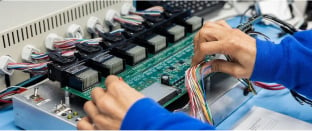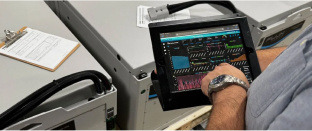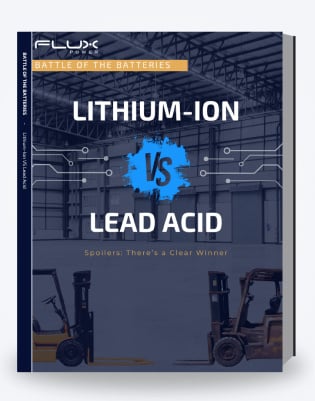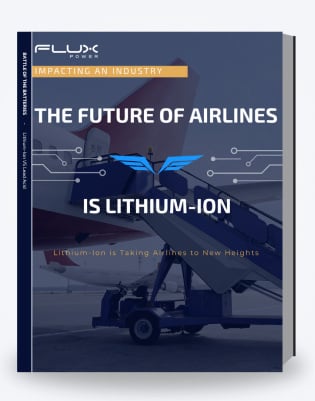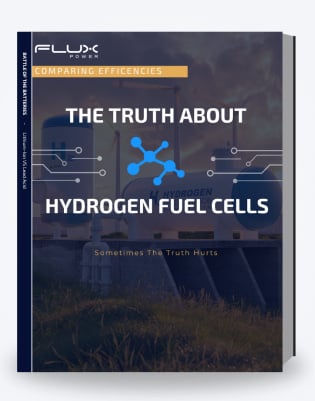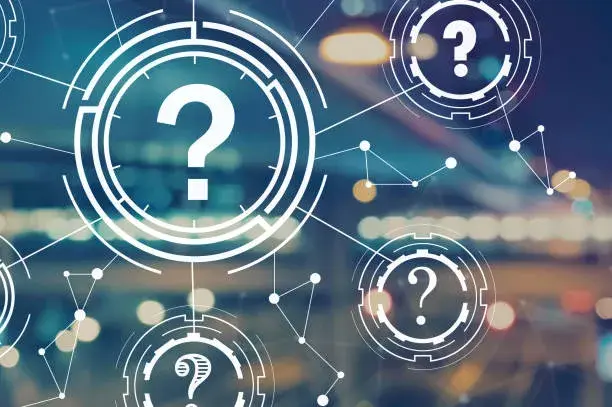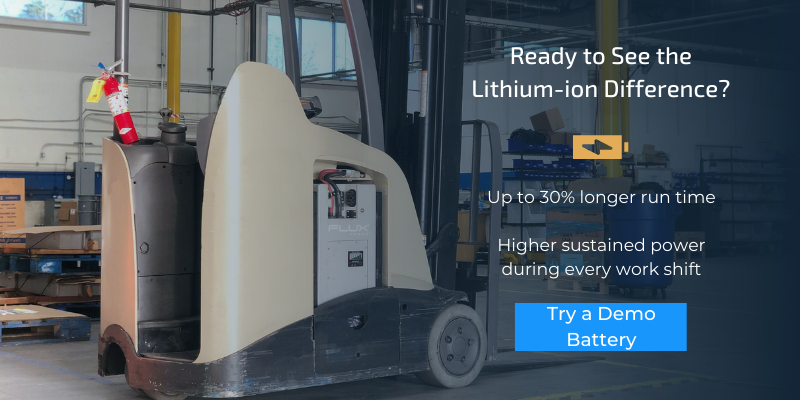Learn the 3 Most Common Myths About the Industrial Lithium-ion Battery
Since its discovery in 1991, industrial lithium-ion batteries have revolutionized the way we do business. Lithium-ion batteries have multiple advantages that make them ideal for any operation. The battery's unique properties allow businesses to improve safety, efficiencies, and significantly improve ROI. Lithium-ion batteries have multiple benefits over their IC and lead acid counterparts, including faster re-charge times, opportunity charging, long cycle life, and full cloud data reporting (Flux SkyBMS). Li-ion batteries virtually eliminate hazardous off-gassing and spills, making them safer and more eco-friendly than their competitors. Despite the many benefits of lithium-ion batteries, there are many common myths that hold some people back from investing in this revolutionary technology.
- All lithium-ion batteries use cobalt, an ethically and environmentally controversial material
- Lithium-ion tech is too new for us to understand whether we’ll benefit from it completely
- Lithium-ion batteries aren’t as environmentally friendly as everyone claims
Myth 1: ALL Lithium-Ion Batteries Contain Cobalt
Many people shy away from investing in Lithium-ion because of the ethical and environmental costs of mining cobalt. While many Lithium-ion batteries in everyday tech use cobalt, the truth is that not all Lithium-ion batteries are made with cobalt. In fact, the LFP (Lithium Iron Phosphate) battery chemistry is quickly surpassing NMC (Nickel Manganese Cobalt) in popularity and performance for industrial equipment.
LFP batteries are Lithium-Ion batteries that do not contain cobalt. Aside from not containing cobalt, LFP batteries are better for our environment due to the fact that they are much less toxic, with iron and phosphate being readily available. LFP is one of the safest and most reliable chemistry options out of all possible alternatives for lithium-ion batteries. This is why LFP batteries continue to grow as the preferred battery choice.
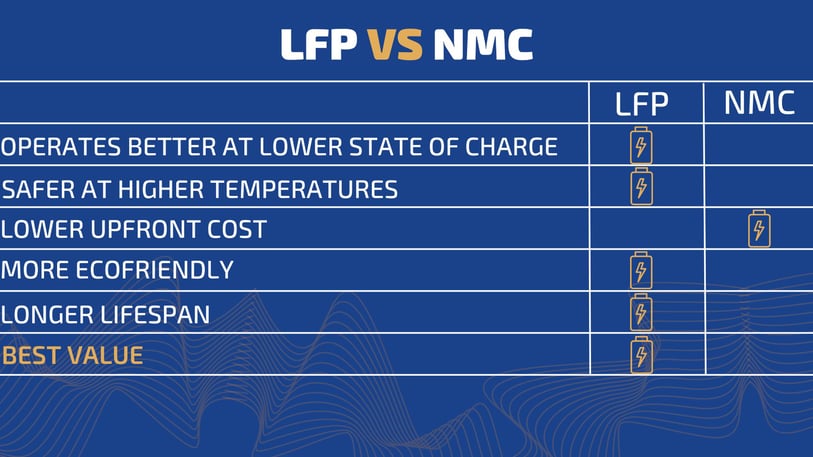
Myth 2: Industrial Lithium-ion Battery Tech is “Too New”
It is commonly assumed that lithium-ion technology is too new to be the superior choice over legacy internal combustion and lead acid batteries systems. In reality, Lithium-ion technology has come leaps and bounds from where it first started in 1991 and is continuously improving at a rapid pace. The last decade has seen industrial lithium-ion begin to take over due to its reliability, low maintenance, and long cycle life.
Today, lithium-ion batteries cost 97% less than they did when they first came to market and can now run for 8+ hours straight. When comparing lithium-ion batteries to their lead acid counterpart, for example, lithium-ion is already the more economical, eco-friendly, and efficient option for users to choose from.
Lithium-ion batteries bring new technology and capabilities that have not been seen in the market previously. Each year these batteries are on the market bring new developments such as improved lithium cell performance, BMS capabilities, and durability among others. Lithium-ion is already established as a better alternative, and continued improvement will prove lithium-ion batteries are the power source of choice for the future.
.png?width=690&height=388&name=Debunking%20the%20Top%20Industrial%20Lithium-ion%20Battery%20Misconceptions%20(Lithium-ion%20VS%20Lead%20Acid%20Visual).png)
Myth 3: Industrial Lithium-ion Batteries Are Not a “Greener” Choice
It is falsely believed that Lithium-ion batteries are no better for the environment than their IC or lead acid counterparts. It’s true that we still have a long way to go in terms of making Lithium-ion technology carbon neutral and there are still environmental costs associated with extracting the lithium and disposing of the spent batteries.
However, the truth is that they’re still a better choice for the environment than lead acid or IC options. As time goes on, we’re continually developing new ways to recycle old batteries. Scientists have created new ways to recycle old materials in lithium-ion batteries to help reduce the need to mine for new material. New research has shown that it might be easier, more cost-effective, and more environmentally friendly to extract lithium from salt water instead of mining it. Overall, the scientific community generally agrees that electric technology still has a much smaller carbon footprint than its IC counterparts.
Overall:
Although lithium-ion technology is relatively new to its market, the technology has quickly become a top pick for those in its market. It is widely agreed that lithium-ion batteries are more economical, eco-friendly, and efficient than their counterparts. While the technology does have many improvements to make, it is already considered the superior choice by those who use it and is only improving with time.
- Myth #1 explained: Look for LFP chemistry when choosing a battery to be sure you are selecting a cobalt-free option.
- Myth #2 explained: Lithium-ion technology advancements have rapidly improved safety and lowered lithium-ion battery costs for its users.
- Myth #3 explained: Lithium-ion batteries are not carbon neutral yet, but they will significantly reduce your carbon footprint with zero emissions.

